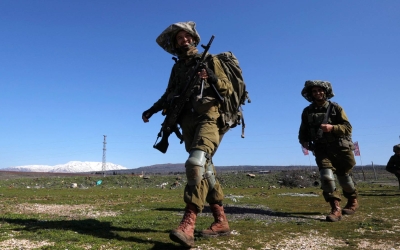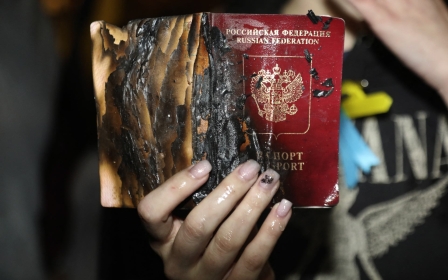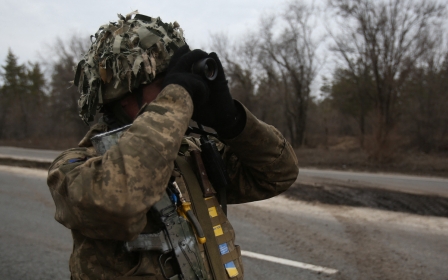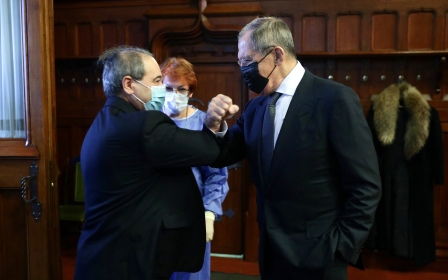Russia-Ukraine war: Moscow to continue military coordination with Israel in Syria
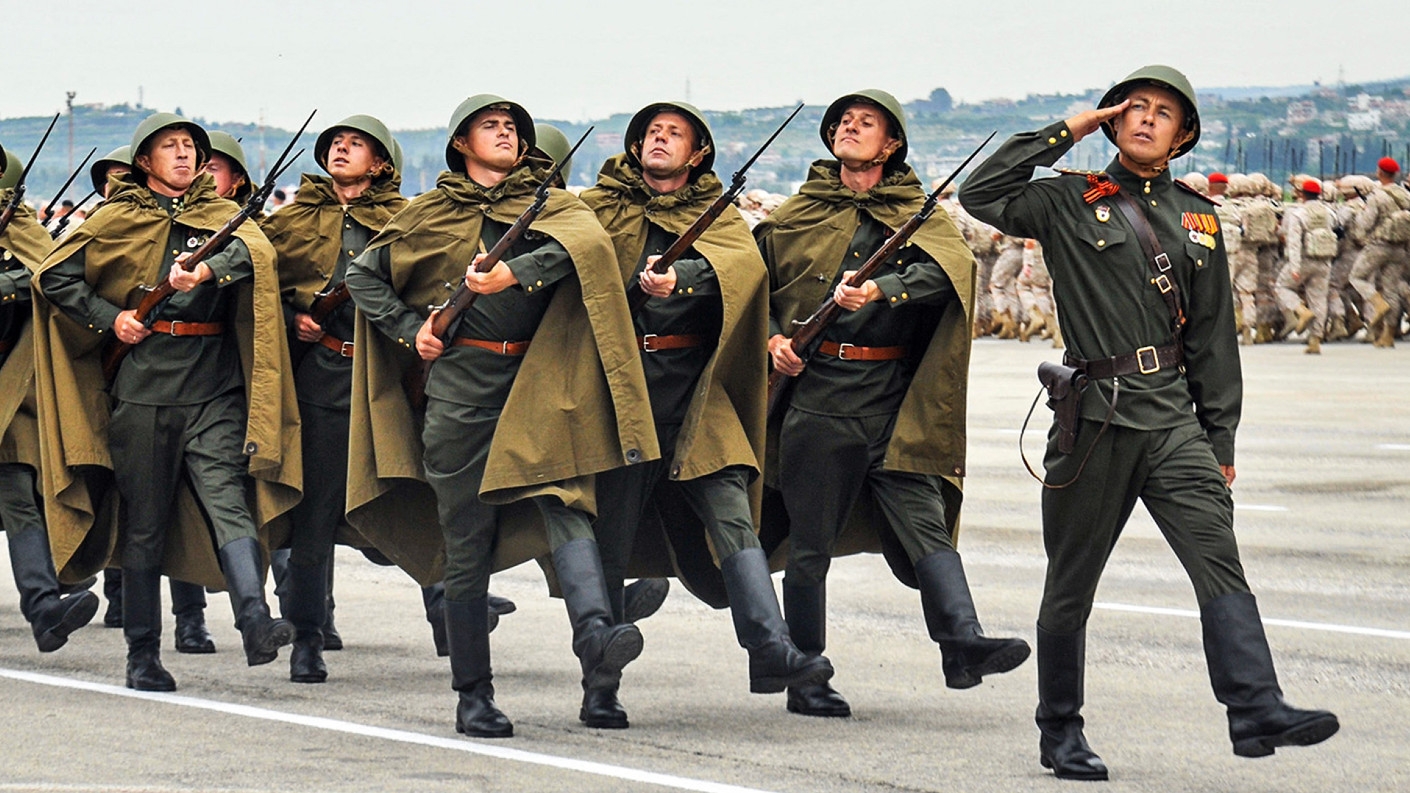
Russia will continue its military coordination with Israel over Syria, the Russian embassy in Israel said on Saturday, despite Moscow's unhappiness with Israeli statements about its invasion of Ukraine.
Following the 2015 Russian intervention in the Syrian civil war, Israel set up a "deconfliction mechanism" with Russia to prevent them clashing inadvertently during Israeli strikes against Iranian deployments and arms transfers in the neighbouring Arab state.
"Our military officials discuss the practical issues of this substantively on a daily basis. This mechanism has proven to be useful and will continue to work," the embassy said in a statement.
But while voicing support for Israel's security needs, it also reiterated opposition to violations of Syrian sovereignty.
New MEE newsletter: Jerusalem Dispatch
Sign up to get the latest insights and analysis on Israel-Palestine, alongside Turkey Unpacked and other MEE newsletters
Asked about prospects for continued coordination with Russia over Syria, the Israeli military said only that its forces "will act when needed to counter threats, defend the people of Israel and our sovereignty".
The conflict in Ukraine puts Israel in a difficult position, with the country being a long-standing, close ally of the US yet also having good relations with both Russia and Ukraine.
Israel, whose main ally is the United States, condemned the Russian invasion of Ukraine on Thursday as "a serious violation of international order" and has since remained largely muted on Moscow's actions.
In response, Moscow, which calls its actions in Ukraine a "special operation," summoned the Israeli ambassador for talks. Russia's United Nations mission restated its opposition to Israel's occupation of the Golan Heights.
On Wednesday, prior to the Russian invasion, Russia's UN envoy, Dmitry Polyanskiy, told a Security Council briefing that Moscow was "concerned over Tel Aviv's announced plans for expanding settlement activity in the occupied Golan Heights, which directly contradicts the provisions of the 1949 Geneva Convention".
He referred to "Russia's unchanging position, according to which we do not recognise Israeli sovereignty over the Golan Heights that are an inalienable part of Syria".
The Golan Heights was officially recognised as part of Syria when the country acquired independence in 1944, years before Israel was created.
A strategic plateau straddling Israel and Syria and overlooking southern Lebanon, the resource-rich region was captured by Israel during the war of 1967. The move officially won US recognition in 2019.
According to official Syrian figures, at least 131,000 Syrians from the cities of Quneitra and Fiq were expelled from the region, and some 137 villages and 112 farms were subsequently annexed.
Middle East Eye delivers independent and unrivalled coverage and analysis of the Middle East, North Africa and beyond. To learn more about republishing this content and the associated fees, please fill out this form. More about MEE can be found here.


